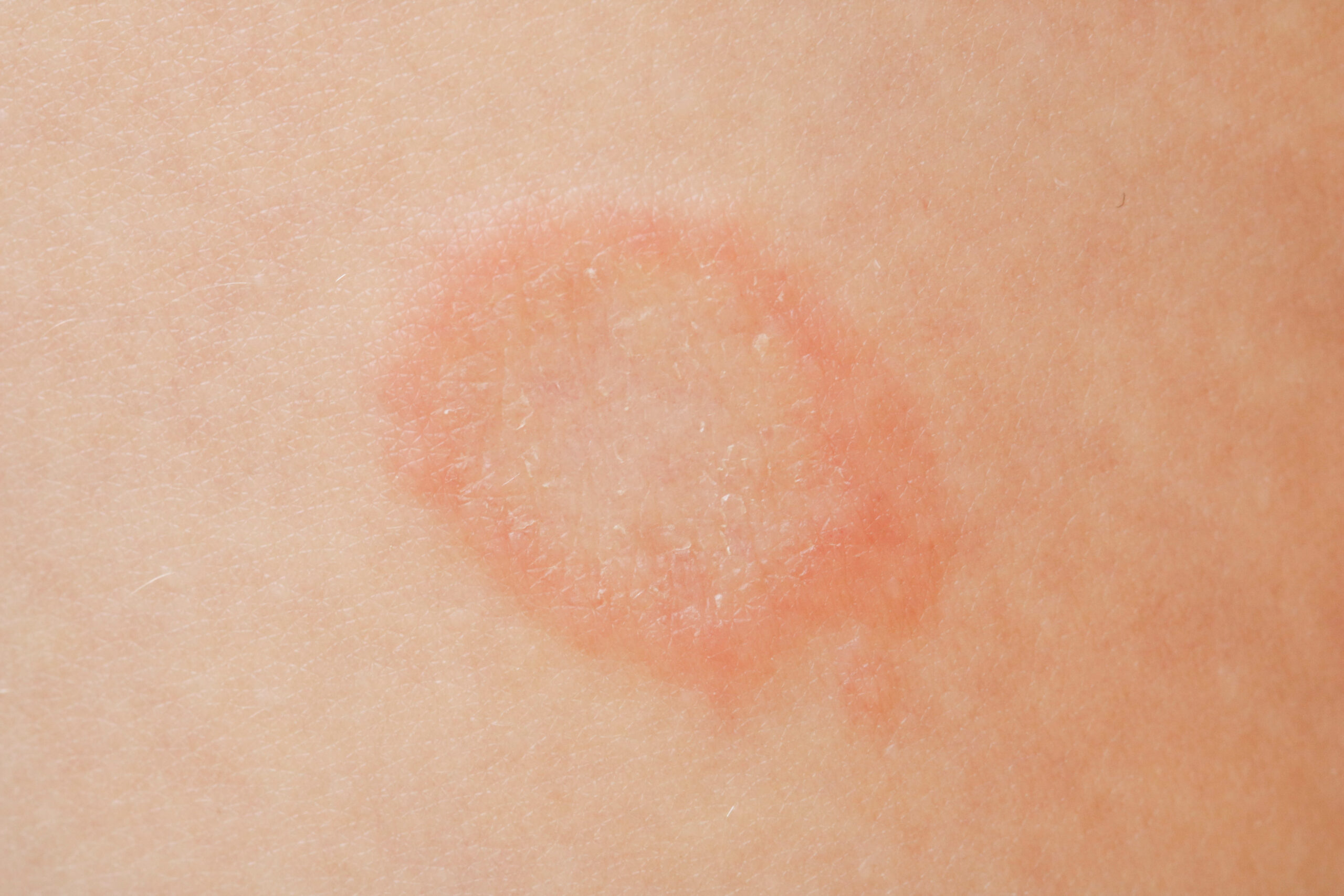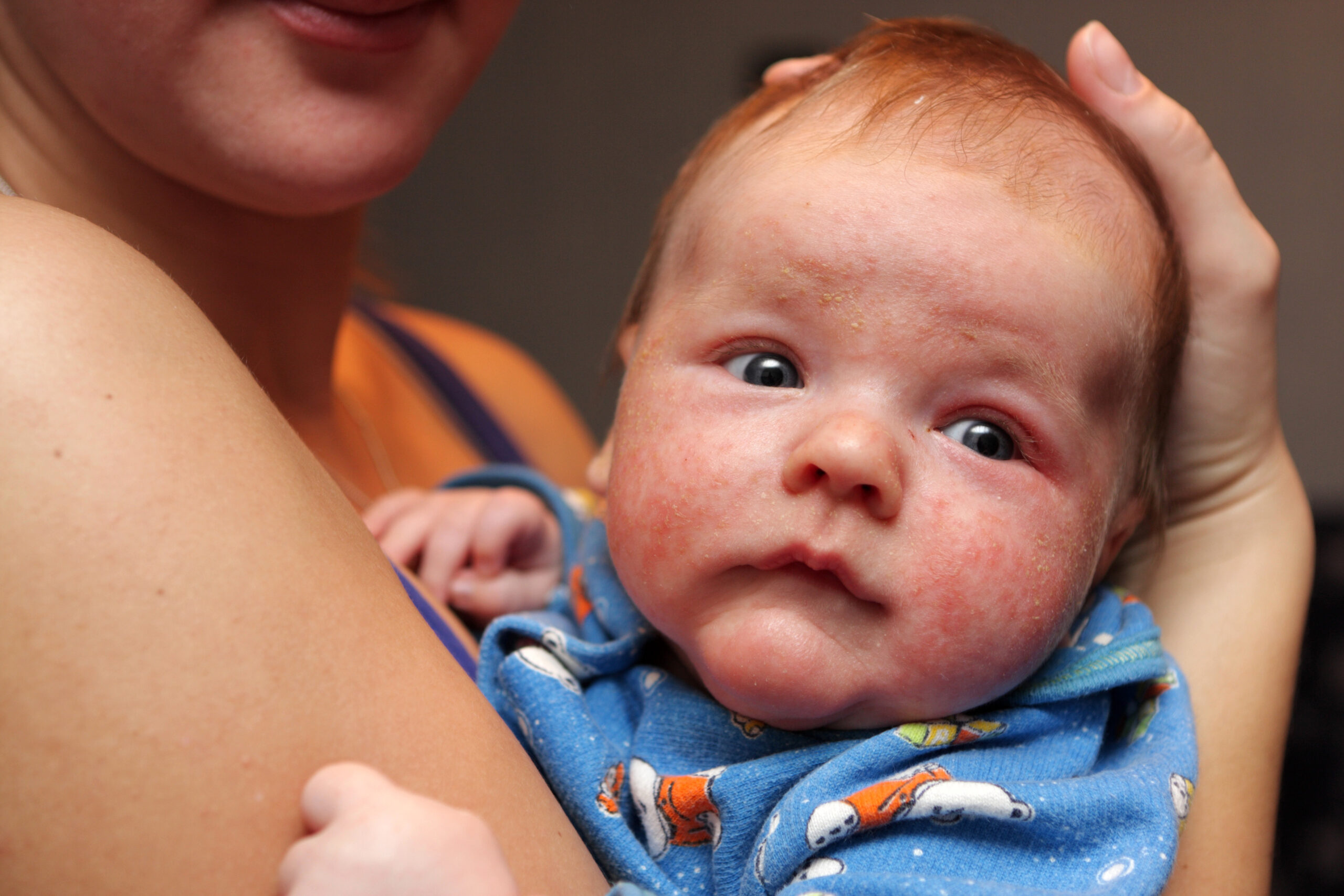Self-diagnosis is not recommended for eczema, especially if you notice your child's symptoms have persisted. However, similar medical conditions exist, which can be easily mistaken for eczema. Below – we will explore some of these similar conditions, discussing how they differ from one another.
Scabies vs eczema
Both scabies and eczema cause itchy, red rashes that develop on the skin. However, the causes are different. Scabies develops due to an allergic reaction to mites living on your skin. Scabies is also highly contagious. In scabies, irritation becomes worse during the nights when the mites on your skin burrow. You can differentiate the two, as eczema rashes are dark in colour, whereas a scabies rash is pink. You will notice small blisters on your skin that are filled with liquid.
Psoriasis vs eczema

Acute psoriasis on the elbows is an autoimmune incurable dermatological skin disease. Large red, inflamed, flaky rash on the knees. Joints affected by psoriatic arthritis
Psoriasis is a chronic skin condition that causes red, scaly patches to develop on the skin. It is rare in infants - and more common in teens and adolescents. Psoriasis is the result of the overdevelopment of new skin cells. The main way to tell the difference between the two is down to their symptoms. Psoriasis tends to cause mild itching, while eczema is much more severe. Treatment is available, and cases usually clear up. Diagnosing psoriasis can be challenging, so getting a doctor's opinion is vital as several other skin conditions share common similarities.
Ringworm vs eczema

Ringworm on a child's skin.
Ringworm is a contagious fungal infection of the skin with a ring like, pink/red appearance The rash can appear suddenly or take a few days to develop. You should always consult a doctor for a diagnosis. Luckily, treatment is simple and effective once you receive a ringworm diagnosis.









